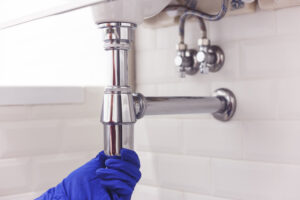 In the realm of homeownership, encountering plumbing emergencies is almost inevitable. From burst pipes to clogged drains, these sudden issues can wreak havoc on your household if not promptly addressed. Understanding how to tackle such emergencies swiftly and effectively can save you time, money, and potential damage to your property. In this comprehensive guide, we delve into emergency plumbing solutions for 2024, offering actionable insights to help you navigate and resolve unexpected plumbing crises with confidence.
In the realm of homeownership, encountering plumbing emergencies is almost inevitable. From burst pipes to clogged drains, these sudden issues can wreak havoc on your household if not promptly addressed. Understanding how to tackle such emergencies swiftly and effectively can save you time, money, and potential damage to your property. In this comprehensive guide, we delve into emergency plumbing solutions for 2024, offering actionable insights to help you navigate and resolve unexpected plumbing crises with confidence.
Identifying Common Plumbing Emergencies
Plumbing emergencies come in various forms, each presenting its own set of challenges and required solutions. Among the most common emergencies include:
- Burst Pipes: Caused by freezing temperatures, corrosion, or excessive pressure, burst pipes can lead to significant water damage if not promptly addressed.
- Clogged Drains: Accumulation of debris, grease, and foreign objects can obstruct drains, leading to slow drainage or complete blockage.
- Water Heater Malfunctions: Issues with water heaters such as leaks, strange noises, or lack of hot water can disrupt daily routines and comfort.
- Toilet Overflows: Blockages in the toilet trap or sewer line can cause toilets to overflow, posing sanitation concerns and potential water damage.
Immediate Actions to Take
When faced with a plumbing emergency, taking immediate action is crucial to mitigate damage and restore functionality. Here are some essential steps to take:
- Shut Off the Water: Locate the main water shut-off valve in your home and turn it off to stop the flow of water. This prevents further flooding and damage.
- Assess the Situation: Quickly assess the nature and extent of the plumbing emergency. Identify the source of the problem and determine if it requires immediate professional intervention or if you can attempt to address it yourself.
- Clear the Area: Remove any valuables, furniture, or electronics from the affected area to prevent water damage. Use towels or buckets to contain and remove excess water if possible.
- Ventilate the Area: Open windows and doors to promote airflow and help dry out the affected area, especially in cases of water damage.
DIY Plumbing Solutions
While some plumbing emergencies require professional expertise, there are several DIY solutions you can attempt to resolve minor issues:
- Unclogging Drains: Use a plunger or plumbing snake to dislodge blockages in sinks, showers, and toilets. Alternatively, try using a mixture of baking soda and vinegar followed by hot water to break down organic matter.
- Repairing Minor Leaks: Temporarily patch minor leaks with plumber’s tape or epoxy putty until a permanent solution can be implemented. Identify the source of the leak and tighten loose fittings if possible.
- Resetting Water Heaters: If your water heater malfunctions, try resetting the unit by turning it off, waiting a few minutes, and then turning it back on. Check for error codes or indicators to diagnose the issue.
- Thawing Frozen Pipes: Use a hairdryer, heat lamp, or electric heating tape to thaw frozen pipes slowly. Never use an open flame or excessive heat, as it can damage the pipes.
When to Call a Professional
While DIY solutions can be effective for minor plumbing issues, certain situations warrant the expertise of a licensed plumber. Consider contacting a professional if you encounter the following:
- Major Pipe Damage: Extensive pipe damage, including burst pipes or corroded plumbing, requires professional repair or replacement to prevent further damage.
- Sewage Backup: Sewage backups pose serious health hazards and require immediate attention from a professional plumber equipped to handle hazardous waste.
- Gas Line Issues: If you suspect a gas leak or encounter problems with your gas line, evacuate the premises immediately and contact your utility provider and a licensed plumber.
- Persistent Problems: If DIY attempts fail to resolve the issue or if plumbing emergencies recur frequently, it’s advisable to seek professional assistance to address underlying issues effectively.
Conclusion
Navigating plumbing emergencies can be daunting, but with the right knowledge and preparation, you can confidently tackle unexpected challenges.
By identifying common plumbing emergencies, taking immediate action, and knowing when to seek professional help, you can safeguard your home against water damage and ensure the continued functionality of your plumbing system. Remember, staying calm and proactive in emergencies is key to minimizing damage and restoring peace of mind in your home.
For the latest insights and recommendations on emergency plumbing services in 2024, consider exploring this publication by the Jerusalem Post.
